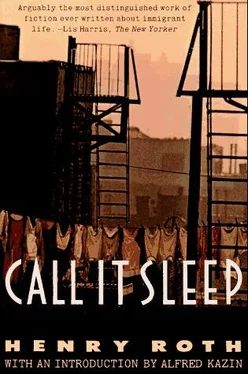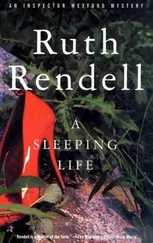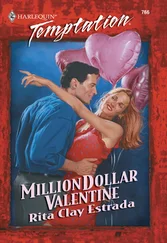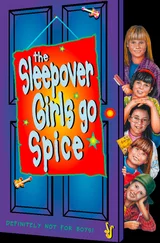“Haven’t I?” She laughed. “There’s hardly anything more to tell. She died the winter of that same year, before the snow fell.” She stared at the rain beating against the window. Her face sobered. The last wink of her eyelids before she spoke was the slowest. “She looked so frail in death, in her shroud — how shall I tell you, my son? Like early winter snow. And I thought to myself even then, let me look deeply into her face for surely she will melt before my eyes.” She smiled again. “Have I told you enough now?”
He nodded. Without knowing why, her last words stirred him. What he had failed to grasp as thought, her last gesture, the last supple huskiness of her voice conveyed. Was it in his heart this dreamlike fugitive sadness dwelled, or did it steep the feathery air of the kitchen? He could not tell. But if only the air were always this way, and he always here alone with his mother. He was near her now. He was part of her. The rain outside the window set continual seals upon their isolation, upon their intimacy, their identity. When she lifted the stove lid, the rosy glow that stained her wide brow warmed his own body as well. He was near her. He was part of her. Oh, it was good being here. He watched her every movement hungrily.
She threw a new white table cloth over the table. It hovered like a cloud in air and settled slowly. Then she took down from the shelf three brass candlesticks and placed them in the center of whiteness, then planted candles into each brass cup.
“Mama.”
“Yes?”
“What do they do when they die?”
“What?” she repeated. “They are cold; they are still. They shut their eyes in sleep eternal years.”
Eternal years. The words echoed in his mind. Raptly, he turned them over and over as though they had a lustre and shape of their own. Eternal years.
His mother set the table. Knives ringing faintly, forks, spoons, side by side. The salt shaker, secret little vessel of dull silver, the pepper, greyish-brown eye in the shallow glass, the enameled sugar bowl, headless shoulders of silver tongs leaning above the rim.
“Mama, what are eternal years?”
His mother sighed somewhat desperately, lifted her eyes a moment then dropped them to the table, her gaze wandered thoughtfully over the dishes and silverware. Then her eyes brightened. Reaching toward the sugar bowl she lifted out the tongs, carefully pinched a cube of sugar, and held it up before his eyes.
“This is how wide my brain can stretch,” she said banteringly. “You see? No wider. Would you ask me to pick up a frozen sea with these narrow things? Not even the ice-man could do it.” She dropped the tongs back into the bowl. “The sea to this—”
“But—” David interrupted, horrified and bewildered. “But when do they wake up, mama?”
She opened her two palms in a gesture of emptiness. “There is nothing left to waken.”
“But sometime, mama,” he urged.
She shook her head.
“But sometime.”
“Not here, if anywhere. They say there is a heaven and in heaven they waken. But I myself do not believe it. May God forgive me for telling you this. But it’s all I know. I know only that they are buried in the dark earth and their names last a few more lifetimes on their gravestones.”
The dark. In the dark earth. Eternal years. It was a terrible revelation. He stared at her fixedly. Picking up a cloth that lay on the washtub, she went to the oven, flipped the door open, drew out a pan. The warmth and odor of new bread entered his being as through a rigid haze of vision. She spread out a napkin near the candlesticks, lifted the bread out of the pan and placed it on the square of linen.
“I still have the candles to light,” she murmured sitting down, “and my work is done. I don’t know why they made Friday so difficult a day for women.”
— Dark. In the grave. Eternal years …
Rain in brief gusts seething at the window … The clock ticked too briskly. No, never. It wasn’t sometime … In the dark.
Slowly the last belated light raveled into dusk. Across the short space of the kitchen, his mother’s face trembled as if under sea, grew blurred. Flecks, intricate as foam, swirled in the churning dark—
— Like popcorn blowing in that big window in that big candystore. Blowing and settling. That day. Long ago.
His gaze followed the aimless flux of light that whirled and flickered in the room, troubling the outline of door and table.
— Snow it was, grey snow. Tiny bits of paper, floating from the window, that day. Confetti, a boy said. Confetti, he said. They threw it down on those two who were going to be married. The man in the tall, black shiny hat, hurrying. The lady in white laughing, leaning against him, dodging the confetti, winking it out of her eyes. Carriages waiting. Confetti on the step, on the horses. Funny. Then they got inside, both laughing. Confetti. Carriages.
— Carriages!
— The same!
— This afternoon! When the box came out! Carriages.
— Same!
— Carriages—!
“Dear God!” exclaimed his mother. “You startled me! What makes you leap that way in your chair? This is the second time today!”
“They were the same,” he said in a voice of awe. It was solved now. He saw it clearly. Everything belonged to the same dark. Confetti and coffins.
“What were the same?”
“The carriages!”
“Oh, child!” she cried with amused desperation. “God alone knows what you’re dreaming about now!” She rose from her chair, went over to the wall where the matchbox hung, “I had better light these candles before you see an angel.”
The match rasped on the sandpaper, flared up, making David aware of how dark it had become.
One by one she lit the candles. The flame crept tipsily up the wick, steadied, mellowed the steadfast brass below, glowed on each knot of the crisp golden braid of the bread on the napkin. Twilight vanished, the kitchen gleamed. Day that had begun in labor and disquiet, blossomed now in candlelight and sabbath.
With a little, deprecating laugh, his mother stood before the candles, and bowing her head before them, murmured through the hands she spread before her face the ancient prayer for the Sabbath …
The hushed hour, the hour of tawny beatitude …
X
HIS mother rose, lit the gas lamp. Sudden, blue light condensed the candle flames to irrelevant kernels of yellow. He eyed them sadly, wishing that she hadn’t lit the lamp.
“They will be coming soon,” she said.
They! He started in dismay. They were coming! Luter. His father. They! Oh! The lull of peace was over. He could feel dread rising within him like a cloud — as though his mother’s words had been a stone flung on dusty ground. The hush and the joy were leaving him! Why did Luter have to come? David would be ashamed to look at him, could not look at him. Even thinking of Luter made him feel as he felt that day in school when the boy in the next seat picked his nose and rolled the snot between his fingers, then peered round with a vacant grin and wiped it off under the seat. It made his toes curl in disgust. He shouldn’t have seen him, shouldn’t have known.
“Is Mr. Luter going to come here too?”
“Of course.” She turned to look at him. “Why do you ask?”
“I don’t know. I just thought — I–I thought maybe he didn’t like the way you cooked.”
“The way I—? Oh! I see!” She reddened faintly. “I didn’t know you could remember so well.” She looked about as though she had forgotten something and then went up the stairs into the frontroom.
He stared out of the window into the dark. Rain still beat down. They must be hurrying toward him now in the rain, hurrying because it was raining. If only he could get away before they came, hide till Luter was gone, never come back till Luter had gone away forever. How could he go? He caught his breath. If he ran away now before his mother came back — stole out through the door silently. Like that! Opened the door, crept down the stairs. The cellar! Run by and run away, leaving upstairs an empty kitchen. She would look about, under the table, in the hall; she would call — David! David! Where are you? David! He’d be gone—
Читать дальше












